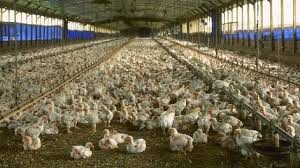
The expansion of poultry operations in northeast Oklahoma has the attention of the governor’s office.
Gov. Mary Fallin joined Cherokee Nation Principal Chief Bill John Baker this week in announcing the state and tribe are forming a coordinating council to evaluate the growth that has sparked concerns among area residents.
Some have held community meetings to express fears that the environment and their water resources will be harmed by the poultry operations.
The two said the coordinating council will bring together state and tribal agencies, scientific researchers, and agricultural and community stakeholders at one table to maximize communication and access to information.
“Oklahoma has successfully used this model to look at a lot of complicated issues in the past, but this is the first time a coordinating council has been created in conjunction with one of Oklahoma’s federally recognized Indian tribes,” said Fallin. “This is a great opportunity to work cooperatively with the Cherokee Nation to focus on a regional issue that impacts both of our governments and citizens. Everyone needs to be at the same table and talking.”
The coordinating council will be co-chaired by Oklahoma Secretary of Agriculture Jim Reese and Cherokee Nation Secretary of Natural Resources Sara Hill. It will include staff from the Cherokee Nation along with staff from Oklahoma’s Department of Food, Forestry and Agriculture, the Oklahoma Water Resources Board, the Grand River Dam Authority, and the Oklahoma Conservation Commission.
“There has been a lot of discussion about the expansion of poultry operations in northeastern Oklahoma,” said Cherokee Nation Secretary of State Chuck Hoskin, Jr. “The new Coordinating Council on Poultry Growth will bring together Oklahoma and Cherokee Nation officials with community and agricultural stakeholders so that there are opportunities for real communication on these issues.”
The coordinating council’s co-chairs will include input from community members, researchers and individuals in agricultural production. Its goal is to ensure that accurate information is being shared between all stakeholders and to protect important natural resources and rural communities while supporting an important sector of the food chain and the agricultural industry.





